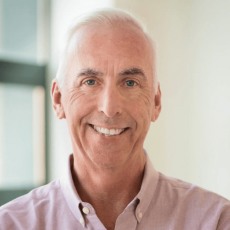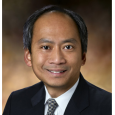What drew you to the work that Aclaris is doing and what vision are you pursuing for the company?
After having trained and worked as an infectious diseases doctor, I switched my career path towards leadership in the rheumatology and inflammatory diseases therapeutic areas. Seeing how enticing these fields are, when I found out about Aclaris' pluripotential programs, I immediately knew this is the place to be. Our approach can be defined as searching for a "franchise in a pill”, one that has utility in multiple domains of medicine: rheumatology, gastro-intestinal, neuro-muscular, dermatological, etc. We are prioritizing oral agents over injectables, since these are a much more user-friendly way of delivering drugs to patients.
Aclaris especially caught my eye because of their acquisition of Confluence Discovery Technologies - a world-class kinase drug discovery company. After five years of this collaboration, we have enabled the progression of four different drugs through IND enablement with 3 in clinical trials. There is also a vibrant pipeline waiting to be developed. The global aggregate sales for kinase-based drugs is close to $100 billion a year, so this is an extremely target-rich part of human physiology to address. Out of the total number of different enzymes of the human kinome, of which there are over 500, only a small minority have actually been drugged. Our goal as a small company with a world class kinase discovery engine is to address unmet needs in the space of immuno-inflammatory conditions.
What are the unmet needs of patients with immuno-inflammatory conditions, and what is the unique contribution that Aclaris brings to address them?
None of the therapies that are available for immuno-inflammatory diseases are curative. Instead, all medicines only treat the symptoms of the disease. Less than 15-30% of the patients suffering from rheumatoid arthritis have high levels of control. Similarly, only approximately a quarter of the patients affected by hidradenitis suppurativa have clinically meaningful responses to existing therapies. Moreover, it has been found that the efficacy of biologicals that treat only one cytokine pathway sometimes wanes over time. Biologicals are not the most patient friendly options since they need to be injected either twice a month, or every week in some cases. Whilst undergoing these treatments, the patients are immuno-suppressed, and thus susceptible to some very serious, opportunistic infections. After stopping these injections, it can take months for the body to regain its immune function. However, during these off periods, the conditions of the underlying immune disease might get worse. In a nutshell, these are the liabilities we try to address and mitigate at Aclaris as best as we can.
Another option is the JAK inhibitor drug class. These are oral agents used for auto-immune diseases. Unfortunately, JAK inhibitors have been shown to have serious side effects for which the FDA has issued a black box warning in many cases. Trying to find a better alternative to these, we are employing an MK2 inhibitor platform. MK2 activates multiple different cytokine pathways – many of which are targeted by monoclonal antibodies. The drug (Zunsemetinib or ATI-450) we are developing can simultaneously decrease the levels and function of TNF, IL-17, IL-6, IL-1 and IL-8. It is currently administered twice a day with a half-life such that the effect should wash out after a few days, versus up to months in the case of biologicals. ATI-450 is in Phase 2 in three different indications: rheumatoid arthritis, hidradenitis suppurativa and psoriatic arthritis. By the end of this year, all the data gathered through these trials will have a readout. Therefore, in 2024 we are planning to start Phase 3 in rheumatoid arthritis - which is where we are furthest along right now.
In your journey so far, what has proven to be the most challenging?
The actual macro-environment is challenging both in terms of the financial and political environment. We conducted research studies in Eastern Europe that have been impacted by the war in Ukraine. This market uncertainty does not help stem the headwinds that the whole industry still faces prompted by the pandemic and its aftermath.During these past few years, misinformation was the main threat that we had to fight, both as an industry and at a personal level.

Luckily, there also were silver linings coming from the pandemic: the most prominent being the general awareness of the population towards health problem which can affect all sectors of life.
How are you managing to fund your efforts, especially in a financial market that has been described as "tough" by other peers?
As of September 2022, we had $248 million in the bank. That’s not counting the $5 million upfront payment from a business development deal we cut with Pediatrics for our topical “Soft” JAK ATI-1777 in Greater China. Although we have a cash runway through the end of 2025, it does not include funding for Phase 3. Consequently, we will either be looking to go to the public markets or to find partnerships or royalty deals to further fund both the pre-commercialization and the commercialization phases of our projects. On top of these, Confluence continues to act as a chemistry CRO so we have a revenue stream coming from their efforts in helping other companies solve difficult chemistry issues. The markets are tough, but with an interesting offering and good data, I am confident that we will be able to continue to develop these assets.





